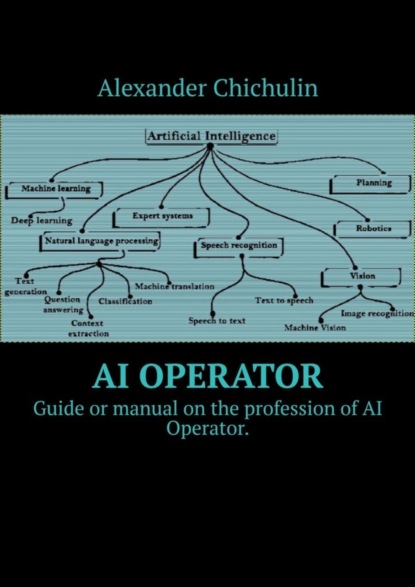AI is powered by algorithms, which are sets of rules that machines follow to process data and make decisions. These algorithms can be simple or complex, depending on the task at hand. For example, a simple algorithm might be used to sort a list of numbers, while a more complex algorithm might be used to identify patterns in large datasets.
The Fundamentals of AI
To become an AI operator, you need to understand the fundamentals of AI. This includes machine learning and deep learning.
Machine learning is a subset of AI that focuses on training machines to recognize patterns in data. In machine learning, machines are given a set of training data and are programmed to recognize patterns in that data. Once the machine has been trained, it can be used to analyze new data and make predictions based on that data.
Deep learning is a subset of machine learning that focuses on training machines to recognize patterns in large datasets. Deep learning algorithms are modeled after the structure of the human brain, with layers of interconnected nodes that process data and extract features. Deep learning is particularly useful in tasks such as image and speech recognition.
Key Skills for AI Operators
To become an AI operator, you need to have a solid understanding of programming and data analysis. You should be proficient in programming languages such as Python, Java, and C++, as well as data analysis tools such as Excel, R, and SQL.
In addition to technical skills, you should also have strong problem-solving skills and the ability to think critically. You should be able to identify patterns in data and make decisions based on that data. You should also be able to communicate your findings effectively to stakeholders.
Conclusion
Artificial Intelligence is a rapidly growing field that is changing the way we live and work. As an AI operator, you will play a critical role in developing and implementing AI systems that can automate tasks and improve efficiency in a variety of industries. To become an AI operator, you need to have a solid understanding of programming and data analysis, as well as strong problem-solving skills and the ability to think critically. With the right skills and knowledge, you can excel in the field of AI and help shape the future of technology.
– What is Artificial Intelligence Operator?
Artificial Intelligence (AI) Operator is a job title for professionals who work in the field of AI. They are responsible for designing, developing, and implementing AI systems that can automate tasks and improve efficiency in a variety of industries.
What does an AI Operator do?
AI Operators work on a range of tasks such as developing algorithms, training machine learning models, and implementing AI solutions. They analyze data to identify patterns and make predictions based on that data.
AI Operators work in various industries such as healthcare, finance, and manufacturing. They work with stakeholders to understand their needs and develop AI solutions that can help them achieve their goals.
Skills Required for an AI Operator
To become an AI Operator, you need to have a strong foundation in programming and data analysis. You should be proficient in programming languages such as Python, Java, and C++, as well as data analysis tools such as Excel, R, and SQL.
AI Operators should also have strong problem-solving skills and the ability to think critically. They should be able to analyze data to identify patterns and make predictions based on that data. They should also have good communication skills to explain their findings to stakeholders.
Why is AI Operator a promising career choice?
AI Operator is a promising career choice because the demand for AI professionals is growing rapidly. As more companies realize the benefits of AI, the demand for AI Operators is only going to increase.
AI Operators are in high demand in industries such as healthcare, finance, and manufacturing. They can help companies automate tasks, reduce costs, and improve efficiency. AI Operators can also help companies make data-driven decisions and identify opportunities for growth.
Conclusion
AI Operator is a promising career choice for those interested in the field of AI. It requires a strong foundation in programming and data analysis, as well as strong problem-solving skills and the ability to think critically. With the demand for AI professionals increasing, AI Operators can play a crucial role in shaping the future of technology and improving efficiency in various industries.
– Understanding the Fundamentals of AI
Artificial Intelligence (AI) is a rapidly growing field that is changing the way we live and work. In this chapter, we’ll explore the fundamentals of AI and how it works.
What is AI?
AI is the simulation of human intelligence in machines that are programmed to think and learn like humans. AI systems can process large amounts of data and make predictions based on that data.
AI systems are designed to perform tasks that normally require human intelligence, such as recognizing speech, identifying images, and understanding natural language.
Types of AI
There are three types of AI: narrow or weak AI, general or strong AI, and superintelligence.
Narrow AI is designed to perform a specific task, such as recognizing faces or playing chess. It is the most common type of AI and is used in a variety of industries.
General AI is designed to perform any intellectual task that a human can. It can think and learn like a human and is capable of performing a wide range of tasks.
Superintelligence is an AI system that is more intelligent than any human being. It is still a theoretical concept, but it is believed that superintelligence could eventually be created.
Вы ознакомились с фрагментом книги.
Для бесплатного чтения открыта только часть текста.
Приобретайте полный текст книги у нашего партнера:








 Рейтинг:
0
Рейтинг:
0